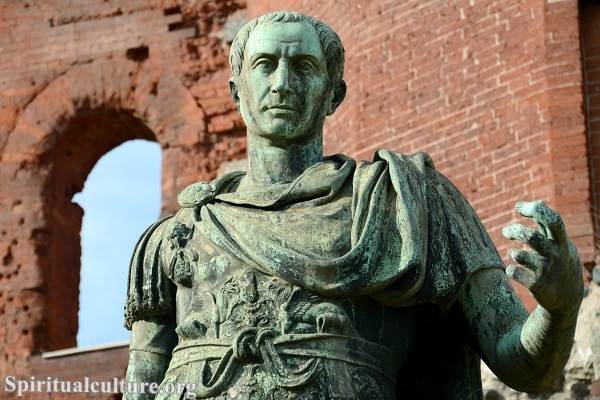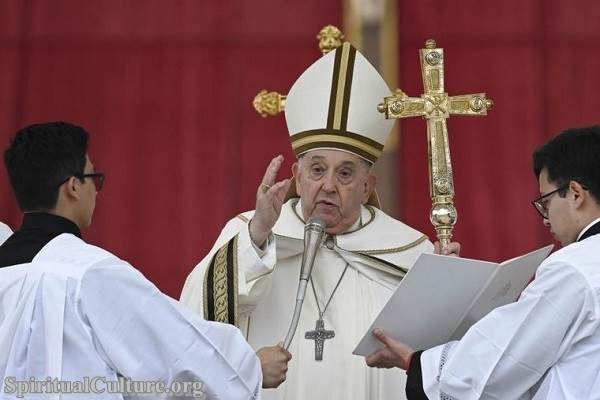For centuries, this question has stirred debate in lecture halls, sacred spaces, and the hearts of many seeking truth. Are science and religion inherently opposed? Must one choose between faith and fact, between divine revelation and empirical evidence? Or might these two pillars of human understanding — science and religion — be not rivals, but partners?
As Spiritual Culture, we invite you into a conversation as old as time yet urgently present. Behind this question lies a profound yearning: to understand our world without losing our soul, and to believe in something beyond without abandoning reason.
In this article, we explore whether the perceived conflict between science and religion is a product of reality or a myth shaped by misunderstanding. We’ll trace the historical tensions and harmonies, look at what sacred texts and scientific minds actually say, and uncover how these two ways of knowing can coexist — and even complement one another — in our quest for meaning.
The Myth of the Eternal War
Science vs. Religion: A Modern Framing?
The idea that science and religion are in constant battle is a relatively recent one. Often traced back to the 19th century, this narrative emerged in part from cultural shifts during the Enlightenment and the scientific revolution. Works like John William Draper’s History of the Conflict Between Religion and Science (1874) shaped a perception of deep antagonism.
But many historians now see this as a myth of conflict, not a reality. In fact, much of what we understand as modern science developed in deeply religious contexts.
Early Scientists Were Often Deeply Religious
- Isaac Newton, father of classical physics, wrote more on theology than on physics.
- Johannes Kepler, who discovered the laws of planetary motion, said: “I was merely thinking God’s thoughts after Him.”
- Gregor Mendel, the father of genetics, was an Augustinian monk.
Science and faith were not at odds — they were intertwined pursuits of truth.
Different Questions, Different Tools
Science Asks “How,” Religion Asks “Why”
At their best, science and religion serve different human hungers.
- Science seeks to understand how the world works — through observation, experimentation, and reasoning. It explores the mechanisms of reality.
- Religion seeks to understand why the world exists at all — the meaning, purpose, and moral direction behind the facts.
They are not always answering the same question. Instead, they operate in complementary domains.
An Analogy: Two Lenses, One World
Imagine looking at a great painting.
- Science is like examining the canvas, the brushstrokes, the pigments.
- Religion is like asking, “What does this painting mean? Who painted it, and why?”
Both are valid. Both are incomplete without the other.
When Worlds Collide: Genuine Tensions
Galileo, Evolution, and Modern Frictions
It would be naïve to deny that there have been real tensions. But these conflicts are often not between science and religion themselves, but between specific interpretations of scripture and emerging scientific understanding.
Galileo and the Church
Galileo’s conflict with the Church over heliocentrism is often cited as proof of opposition. But in truth:
- The opposition was as much political as theological.
- Many within the Church supported Galileo.
- Over time, the Church recognized the validity of his work.
Darwin and Evolution
Charles Darwin’s theory of evolution also challenged traditional readings of Genesis. But many Christian theologians — then and now — have seen evolution as a tool God used, not a denial of divine creation.
As Pope John Paul II said in 1996:
“New knowledge has led to the recognition of the theory of evolution as more than a hypothesis.”
Sacred Texts and Scientific Curiosity
What Do Scriptures Actually Say?
Many sacred texts do not present themselves as scientific manuals. Instead, they offer poetic, moral, and spiritual truths.
The Bible
- Genesis 1, for instance, offers a symbolic account of creation, rich in theological meaning.
- The Hebrew word “yom” (translated as “day”) can also mean an age or epoch — leaving room for non-literal interpretation.
The Quran
- The Quran encourages reflection on the natural world:
“Verily, in the creation of the heavens and the earth, and in the alternation of night and day, there are indeed signs for people of understanding.” (Quran 3:190)
Hindu Scriptures
- The Rig Veda speaks in mystery:
“Who truly knows, and who can declare it, whence it was born and whence came this creation?” (Rig Veda 10.129)
These texts invite wonder, not merely explanation.
Faith and the Scientific Spirit
Can a Scientist Be a Person of Faith?
Absolutely. Many renowned scientists see no contradiction between their research and their belief in the divine.
- Francis Collins, former head of the Human Genome Project and a committed Christian, wrote The Language of God, arguing that DNA is “the language God used to create life.”
- Albert Einstein famously said:
“Science without religion is lame, religion without science is blind.”
Their lives suggest that faith and reason can enrich one another, not cancel out.
When Science Becomes a New Religion
Scientism vs. Science
The conflict often arises not from science itself, but from a philosophy known as scientism — the belief that science is the only valid path to knowledge.
This view dismisses moral, philosophical, and spiritual insights as irrelevant. But:
- Science can explain how to build a bomb — but not whether we should use it.
- Science can measure hormones of love — but not what it means to love well.
Religion and philosophy remain indispensable guides to human wisdom.
When Religion Rejects the World
Faith Must Not Fear Facts
Some religious expressions do resist science — often out of fear that it undermines their authority. But true faith need not fear discovery.
As Augustine of Hippo said in the 4th century:
“All truth is God’s truth.”
Religion that refuses to learn becomes brittle and defensive. But faith that embraces truth, wherever it appears, becomes resilient and radiant.
Bridging the Divide: Living in Both Worlds
Science and Religion in Dialogue
Many institutions now explore integration rather than opposition:
- The Templeton Foundation funds work at the intersection of science and spirituality.
- Universities like Harvard Divinity School and Oxford’s Ian Ramsey Centre foster deep dialogue.
In education, healthcare, and climate advocacy, religious and scientific voices often collaborate, not clash.
A Unified Vision: Wonder, Wisdom, and Worship
Why We Need Both
In a fragmented world, we need both the precision of science and the depth of religion.
- Science cultivates wonder — awe at the complexity and majesty of the cosmos.
- Religion nurtures wisdom — guidance for how to live, love, and suffer well.
- Together, they call us to worship — not in blind belief, but in reverent response to life’s mystery.
Reflect and Reimagine
Are science and religion really in conflict?
Perhaps only when we force them to be.
As Spiritual Culture, we see them as two sacred streams — one flowing from the mind’s hunger to understand, the other from the heart’s longing to belong. When brought together, they nourish a vision of life that is both deeply rooted and widely open.
So ask your questions. Do your experiments. Say your prayers.
Truth has many voices — and one source.
Let us walk humbly in both light and mystery.


